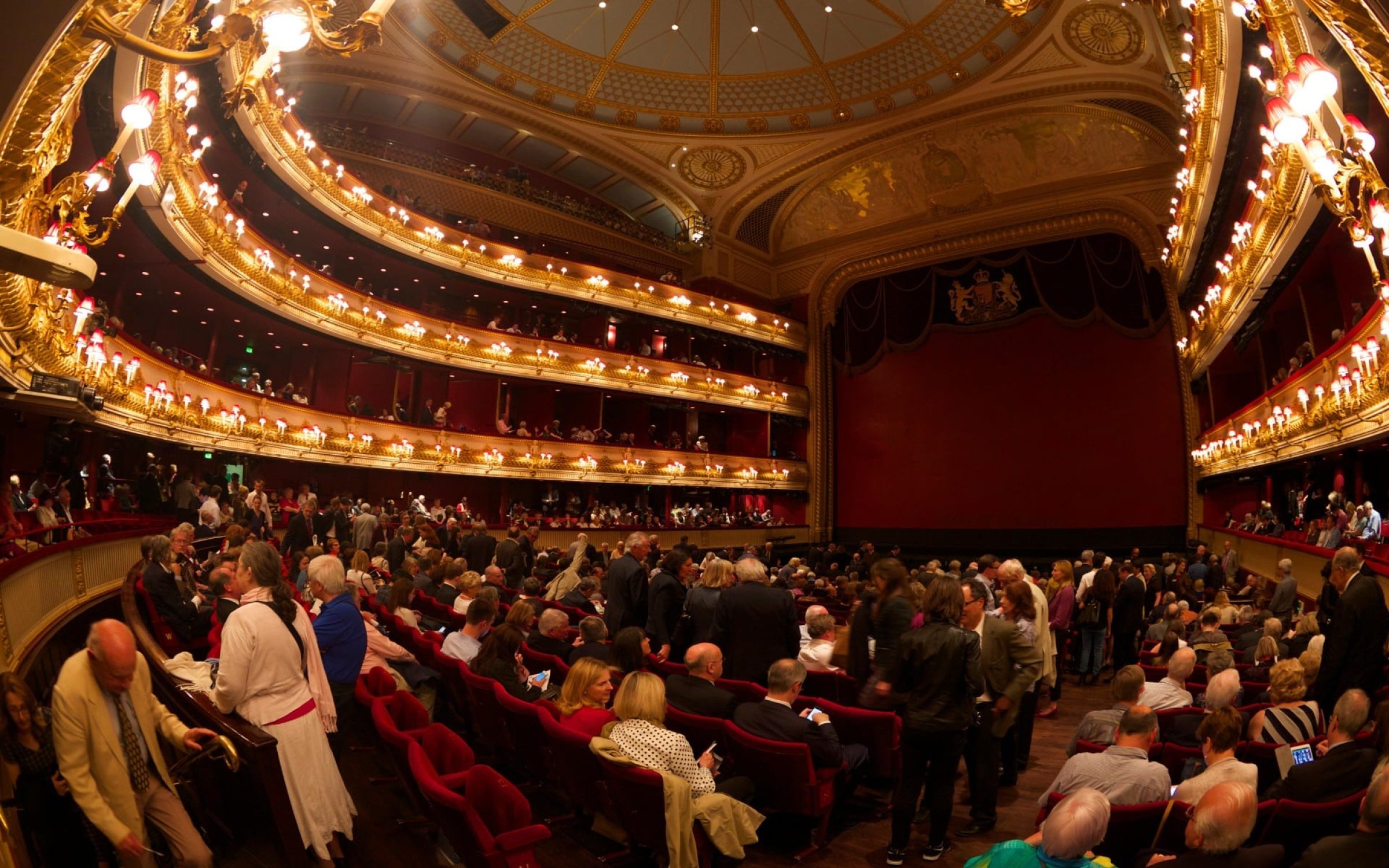Opera, unlike most other art forms, embraces audience participation. While clapping between movements may be frowned on in the concert hall, loud cheering in an opera, mid scene, mid Act, is par for the course.
Ballet dancers, too, will be applauded after great feats – the famous 32 fouettés sequence from Swan Lake, for instance – are accomplished with aplomb. But it is to opera houses that arts lovers flock to make a noise.
Far from the caricatured stuffy, cynical, hard to please, aged elite, an opera audience tends to be effusive and ebullient, generous and even forgiving – during the performance, at least.
But this truth was confounded on Tuesday night in an incident that took place in the Royal Opera House, involving an elderly man booing a boy on stage.
The man, not yet named but said by those sitting near him to be “well over 70”, apparently started “harrumphing” before yelling “rubbish” at Malakai M Bayoh, 12, while he was singing during the first night of Handel’s Alcina.
The lad, who has already appeared at Covent Garden, and garnered a clutch of enthusiastic reviews for this role, will hopefully withstand one old codger’s rudeness and disapproval.
I saw Malakai during the opera’s rehearsal a few days earlier and his acting and stage presence alone surely tip him for stardom. Up in the amphitheatre, the crowd of opera anoraks was certainly enchanted and erupted in applause every time he sang, as, reportedly, did Tuesday’s audience.
The heckler himself has been banned for life by the ROH, a swift and appropriate response – not because booing per se is unforgivable but because the target was a child.
The fact that the boy is black has been raised, mainly in the subsequent Twitter storm, to suggest that the outburst was racially motivated. But, without knowing the identity of the loathsome oaf, I expect he was more common garden curmudgeonly opera buff than white supremacist.
With the young singer facing a bright future and the old bore out the door, the real loser in all this is opera. To those – the majority of the population – who don’t love and understand such art, the behaviour of one man may merely confirm prejudices that this is a rarefied environment from which normal people, and normal courtesies, are excluded.
The reputational damage could not come at a worse time. Just over a week ago, Arts Council England announced devastating cuts to the arts as part of the government’s levelling up agenda.
The funding body, told to move money out of London, has picked, in particular, on opera companies, some of which are now in a battle to survive.
English National Opera’s subsidy will be cut altogether in April unless it abandons its base at the London Coliseum and moves to Manchester; some 300 musicians, singers and technical staff face losing their jobs.
As ENO chairman Harry Brünjes said: “It’s taken about 100 years to build up, and about ten seconds to shut it down.”
Meanwhile, Welsh National Opera is set to lose a third of its subsidy for touring and Glyndebourne’s touring grant has been halved. Funding instead will go to more start-up enterprises and obscure arts groups of questionable pedigree.
Aside from the short sightedness of these individual decisions – Manchester, for example, already hosts Opera North, while the touring productions take opera to wider audiences, as is the government brief – there is an existential threat to the art form itself.
The art council’s director of music, Claire Mera-Nelson, admitted to the Telegraph that she believed “it is sometimes more important to think about audience opportunity than it is to always prioritise the quality of the platform”.
This dumbing down approach, trading artistic excellence and grandeur of scale for accessibility, completely misses the point about the opera experience.
Remove the brilliance and prestige of the endeavour, and you strip it of its power to transcend the everyday and transport its audience to higher plains, as anyone who has sat through a ho-hum show will attest.
Opera done properly is expensive – £1 million perhaps for a big production – and needs investment, but it also needs public support.
The argument for cultural subsidy is strong – the ENO, where dress circle seats can still be had for £35 and under-21s go free, has introduced many people to opera and launched operatic careers.
Besides, the cultural sector contributes massively to the economy. London’s cultural organisations “power our capital’s economic comeback as well as the wider UK economy every year”, said the mayor, Sadiq Khan, making the case for continued investment.
But taxpayers will begrudge opera – and new audiences will stay away – so long as it is associated, however unfairly, with out of touch, over-privileged dinosaurs.
Back on Twitter, comments following the ROH booing rumpus ranged from “funding cuts to institutions like this are maybe not all bad”, to labelling opera goers in general “bigots”, to drawing parallels with Meghan Markle’s “treatment” in Britain, to blaming Tory immigration policy.
No wonder it was the people in the auditorium that night, and the ROH, knowing what was at stake, who were most outraged by the ugly episode.
Write to us with your comments to be considered for publication at letters@reaction.life





